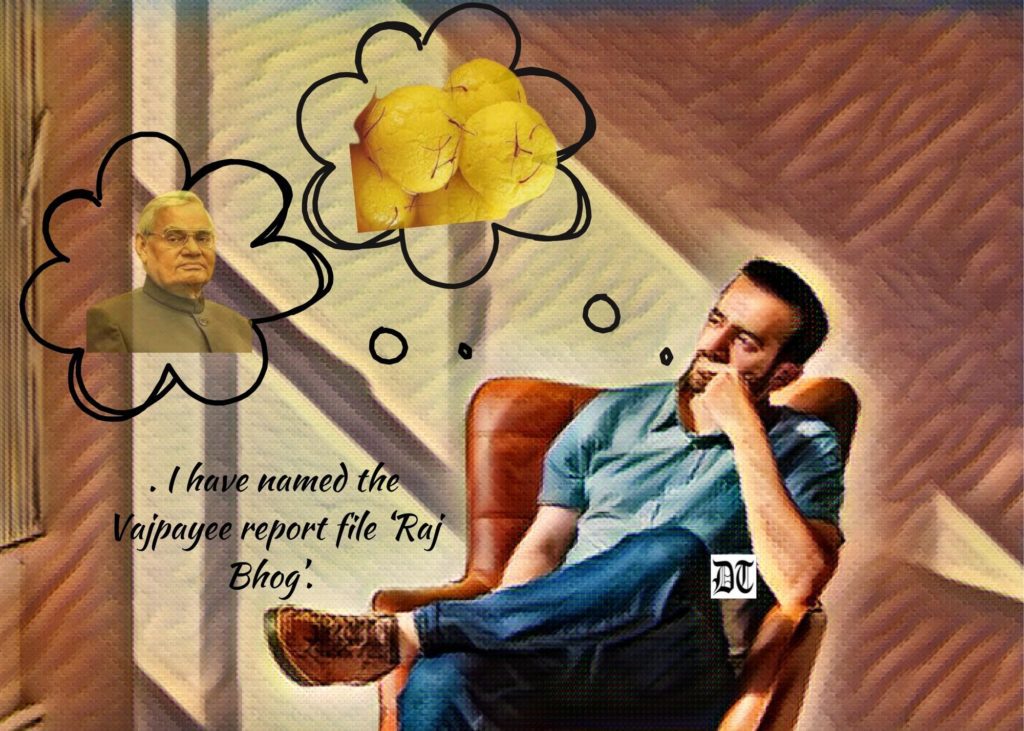In his over three-decade journey as a journalist, Arindam shows us the many faces of newsrooms in India, at the turn of the Millennium. He calls this series, ‘The Life of a Reporter’. Insightful, humorous, serious or sad, there are many shades and hues in the lives of reporters that never see the light of the day. Here’s a firsthand account from an insider.
I remember Shekhar (name changed), a fair and handsome young man, with twinkling mischievous eyes, as an endearing person. I was heading the Hindustan Times bureau, at Varanasi, then, while he worked with the Hindustan, its Hindi edition. This was some twelve years back.
In his mid-30s, Shekhar lived in style. He had a maroon car, spick and span, with milk while pillows and covers. Yes, you guessed it right. He could doze off in the middle of a sentence or a loud laughter. Still, uncannily, he knew what was being discussed. His cat winks were disarming, an enigma, like him. He existed at two, three or more planes, simultaneously, I felt.
In the crazy madhouse called newsroom, he was a foil. Someone nicknamed him ‘Coolant’. He was also called ‘Air conditioner’. In his easy, no-haste approach, I found a co-traveller.
My colleague, Biplob (name changed) and Shekhar went to cover a programme of Atal Bihari Vajpayee in a nearby district, one afternoon. When they returned, Biplob was in a state of shock. He told me, in Bengali, that Shekhar had been asleep while Vajpayee ji spoke. He just got up with a startle twice and went back to sleep. Visibly upset, he added, “I will not share my notes with him.”
I replied, “Wait till he files his report. And, yes, you don’t have to.”
Biplob’s dismay was heightened when next morning, Shekhar’s report sparkled and was the best. He was further confused and in between short laughs and sniggers, he asked, “Ki kore holo ei shob (How did all this happen?). He was sleeping. I heard him snoring too…”
“That’s deception. Shekhar is much deeper than you can ever guess.”
Flashback to the earlier day; Shekhar sat cross-legged on his revolving chair. He was keying the story, breaking into random loud peals of laughter, now and then. I asked him to share the joke. He quipped, “Why do they have such boring auto-names (to save the word files)?” I knitted my brow and waited for him to continue.

He added, “Dada (that’s what he called me) you will understand this well. Like you, I love Bengali sweets. I have named the Vajpayee report file ‘Raj Bhog’. I use sweets and snacks as names. Depends on what I feel like having then. Our small salaries don’t allow us the extravagance of having what we want to eat. I fulfill my cravings with food names for word files.”
“Why, Raj Bhog?”
His eyes had that naughty glint again. “Look at his face. It reminds me of Raj Bhog!”
We both laughed aloud (no offence Vajpayee ji).
I heard about Shekhar from a common friend a few years back. He told me that Shekhar has quit journalism (well, many do). He found a dilapidated Shiva temple on the outskirts of Lucknow. He has become a Baba. He smokes chillam (clay pipe) and eats whatever he gets from the villagers. He looks different now. He refuses help and does not come home too.
I wondered if this was another face of cynicism, an atheist becoming a Shiva devotee. My chain of thought was broken, when he added, “The only thing that hasn’t changed is his sparkling eyes and laughter.”
I nodded thoughtfully and muttered, more to myself, “Shekhar will always be an enigma. But, thank god, some things never change!”
Picture design by Anumita Roy





 By
By


 By
By
The Sufis would call Shekhar a Madzub. Such beings are beyond the law, so to speak, and they some times appear to be mentally ill to those who have not eyes to see. What a blessing for you to see and for me to hear. The next lesson will be for Shekhar to tell us: “why Shiva?” Perhaps the answer will come in a dream or a vision, perhaps straight from your friend. Be sure to let us know!
Many thanks, Amidha. This is an interesting revelation. ~ Arindam
What a lovely, intriguing story. Reminded me of a Russian folktale character – Ivan – who is considered a dunce and sits on the stove all day, only to reveal his prowess at the chosen time. – usually when the rescuing of a princess or slaying of a dragon was called for. Thank you for sharing this with us Arindam.
Little did I know that my friend Shekhar was an archetypal figure in Russian folktales. This is so encouraging. Thanks a lot, Joyce.